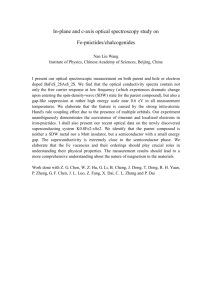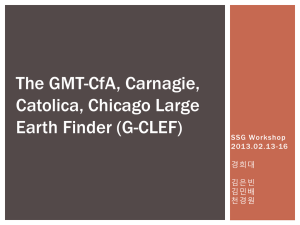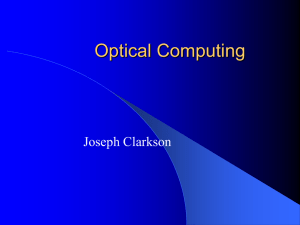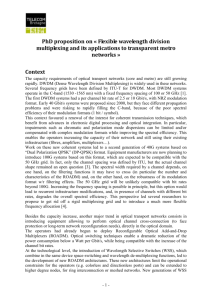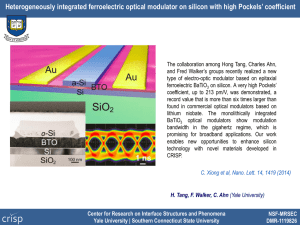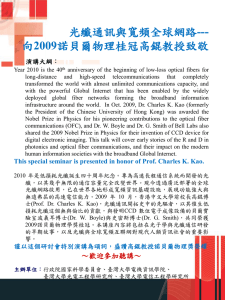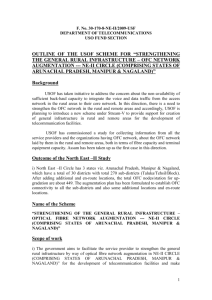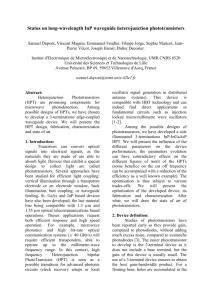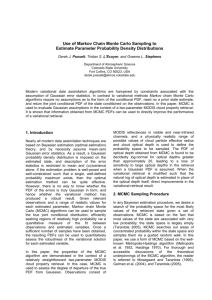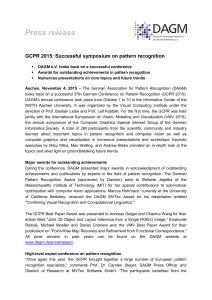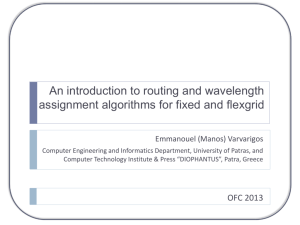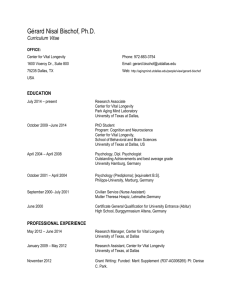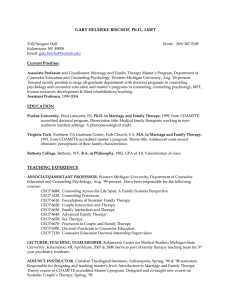Fast and Accurate Optical Flow Estimation
advertisement
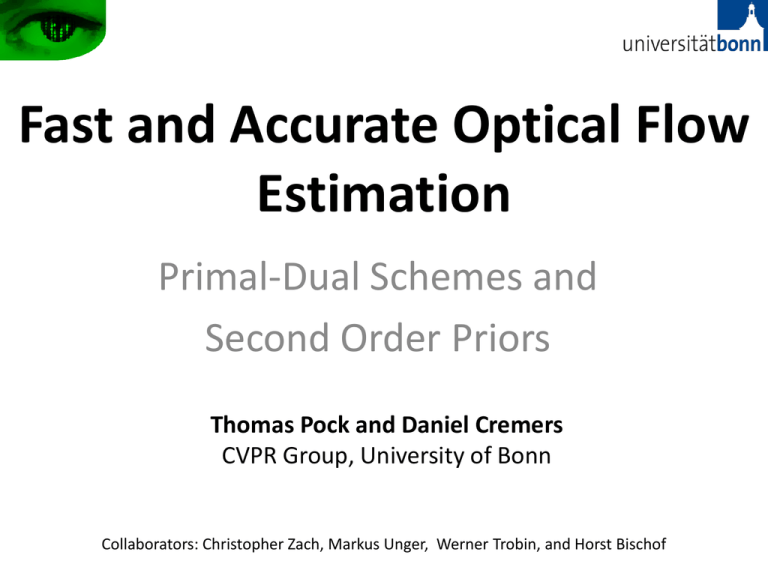
Fast and Accurate Optical Flow Estimation Primal-Dual Schemes and Second Order Priors Thomas Pock and Daniel Cremers CVPR Group, University of Bonn Collaborators: Christopher Zach, Markus Unger, Werner Trobin, and Horst Bischof Variational Optical Flow – Short History 1981 Horn and Schunck 1993 Black and Anadan, Cohen 2000 2004 Aubert Brox et al. 2006 Bruhn et al. Outline • • • • • Model of Horn and Schunck TV-L1 Model Fast Numerical Scheme Parallel Implementation 2nd order Prior The Model of Horn and Schunck [1] Regularization Term Data Term (OFC) + Convex + Easy to solve - Does not allow for sharp edges in the solution - Sensitive to outliers violating the OFC [1] Horn and Schunck. Determinig Optical Flow. Artificial Intelligence, 1981 Can we do better? • Replace quadratic functions by L1 – norms • Done by Cohen, Aubert, Brox, Bruhn, ... +Allows for discontinuities in the flow field +Robust to some extent to outliers in the OFC +Still convex - Much harder to solve How can we minimize this functional ? • Compute Euler-Lagrange Equations • Non-linear, non-smooth, ... Standard Approach • Replace L1 – norm by regularized variants (Charbonnier function) • Example: • Small epsilon: Nearly degenerated • Large espilon: Smears edges Our Approach(1) • Introduce auxiliary variables and constraints • Quadratic penalty Our Approach(2) • What do we gain? • We solve a sequence of simpler problems 1D Problem ROF Model [2] Algorithm[3]: 1. For fixed (u´,v´), solve for(u,v) using Chambolle‘s algorithm[4] 2. For fixed (u,v), solve for (u´,v´) using a 1D shrinkage formula 3. Goto 1. until convergence [2] Rudin, Osher and Fatemi. Nonlinear Total Variation Based Noise Removal Algorithms, 1992 [3] Zach, Pock and Bischof. A Duality Based Algorithm for Realtime TV-L1 Optical Flow, DAGM 2007 [4] Chambolle. An Algorithm for Total Variation Minimization, 2004. Implementation • Numerical scheme can be easily parallelized • We use state-of-the-art GPUs Performance Evaluation • TV-L1 Optical Flow Implemented in CUDA 2.0 • Computed on Nvidia GeForce GTX 280 • 25 Overall Iterations (5 Chambolle Iterations) Image Size 128x128 256x256 512x512 Frames per Second 192 108 36 Results for TV-L1 Input Image: Ground Truth: Our Results: 2nd order Prior • TV regularization favors piecewise constant flow fields (frontoparallel motion) • Extension to piecewise affine flow fields? • Approach of Cremers et al. [5] – Fixed number of regions • Approach of Nir et al. [6] – Over-parametrized optical flow • Our approach [7] – 2nd order derivatives to regularize flow field [5] Cremers and Soatto, Motion Competition: A Variational Framework for Piecwise Parametric Motion Segmentation. [6] Nir, Bruckstein and Kimmel, Over-Parameterized Variational Optical Flow, IJCV 2007 [7] Trobin, Pock, Cremers and Bischof, An Unbiased Second-Order prPior for High-Accuracy Motion Estimation, DAGM 2008 2nd-L1 Optical Flow • 2nd order derivatives are not orthogonal • We use a transformation due to Danielsson [8] • Optimization – Similar strategy to TV-L1 – 4th order PDE [8] Danielsson and Lin, Efficient Detection of Second-Degree Variations in 2D and 3D Images, 2001. Comparison Ground truth TV-L1 2nd -L1 Results for 2nd-L1 Ground Truth: Our Results: Conclusion • TV-L1 Optical Flow – Fast Numerical Scheme • Parallel Implementation – Realtime Performance • 2nd order prior – Piecewise affine motion Recent Application: Tracking

